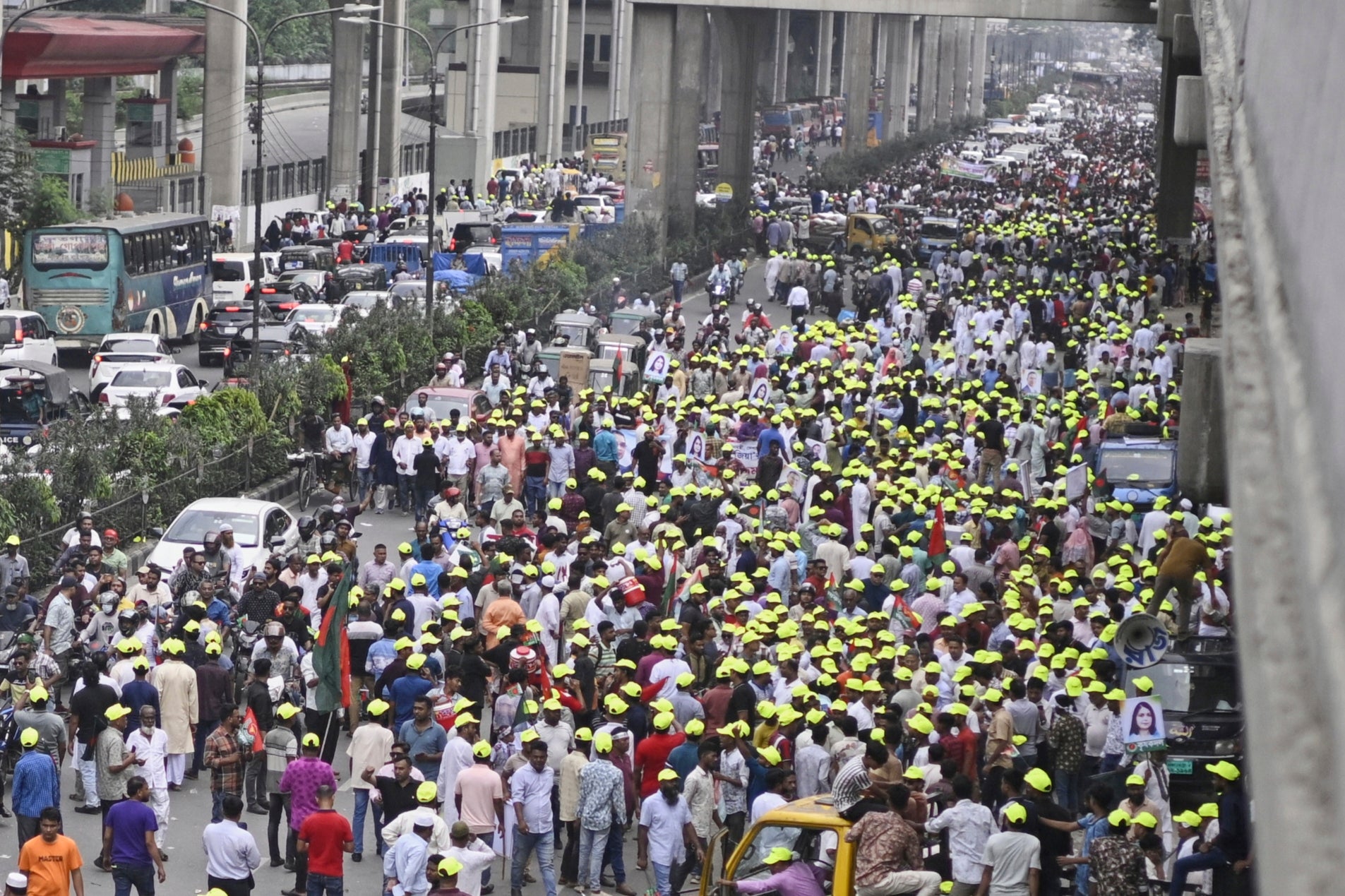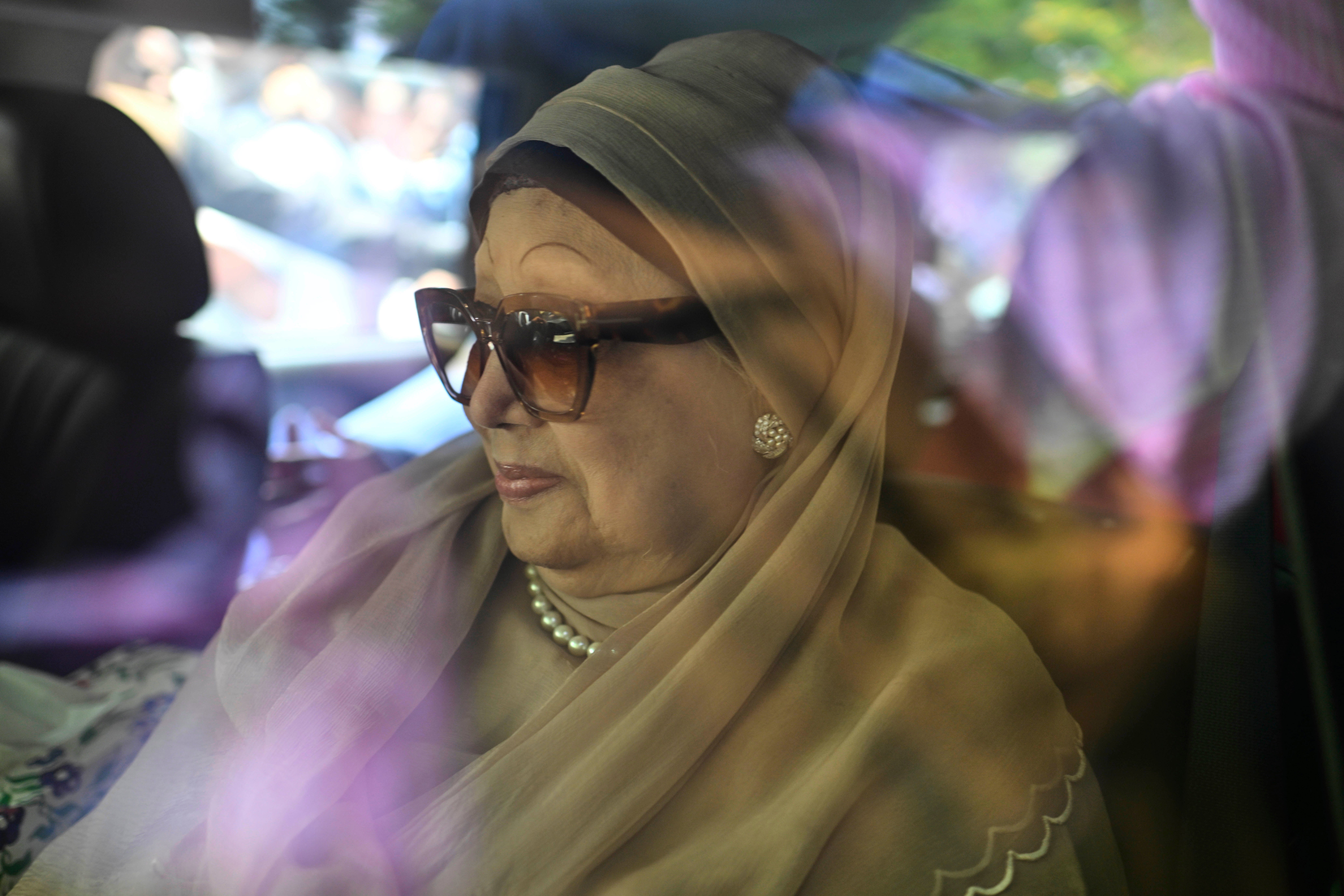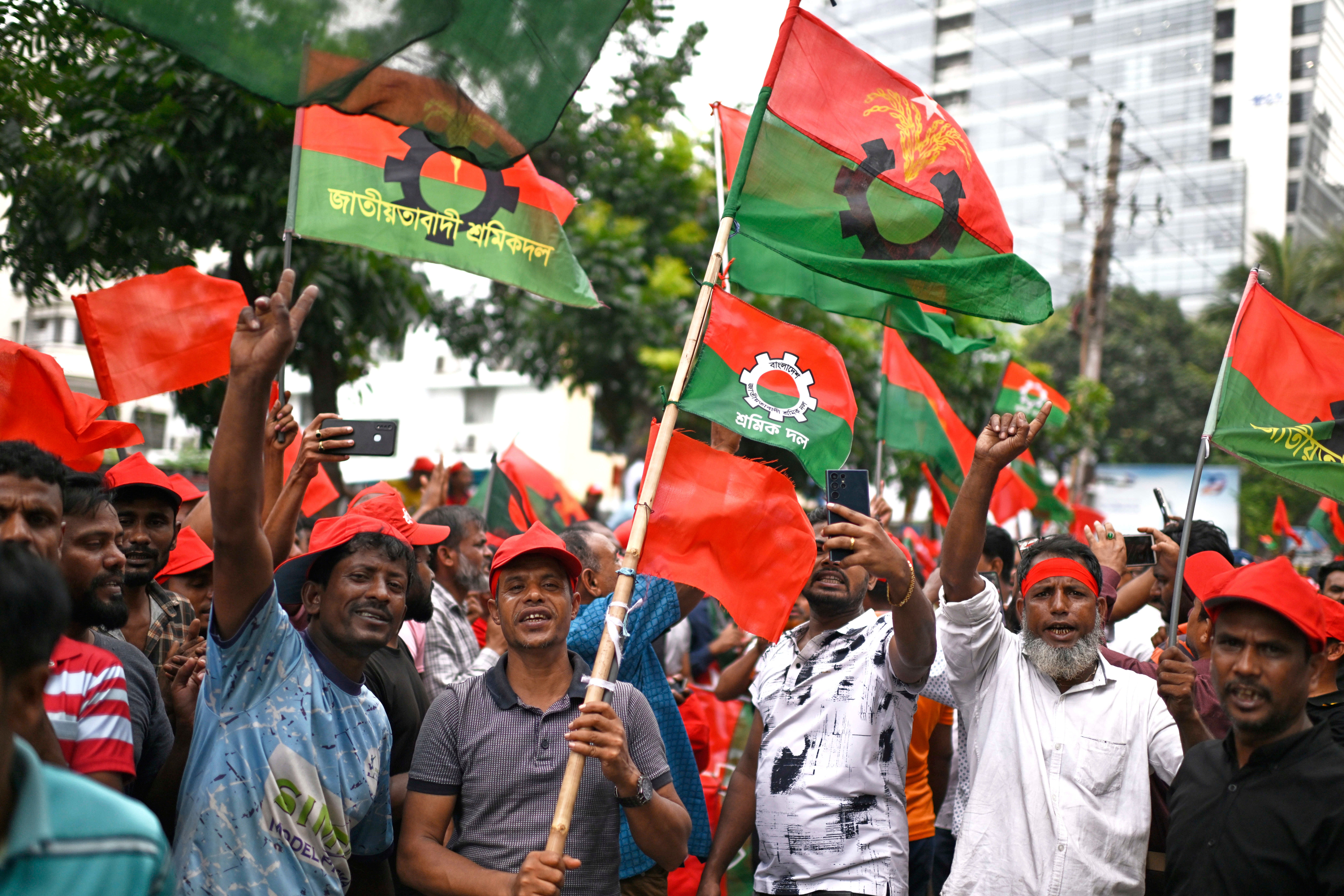ARTICLE AD BOX
Former prime minister Khaleda Zia has returned to Bangladesh after nearly four months of medical treatment in London, intensifying calls for the interim government to announce elections.
The interim government, led by Nobel laureate Muhammad Yunus, took power after Sheikh Hasina was ousted by a mass agitation last August.
The return of Ms Zia, 79, reportedly arranged with help from Qatar’s emir, is seen by her Bangladesh Nationalist Party as a step toward restoring democracy in the South Asian country.
She had gone to London in early January on a special air ambulance arranged by the Qatari ruler.
Ms Zia landed to a hero’s welcome in Dhaka as thousands of party supporters lined the streets, waving flags and chanting.
The former prime minister’s return, observers say, is set to boost her party’s push for elections to be held by the end of the year.
Mr Yunus has hinted that elections may be delayed until 2026.

Ms Zia’s presence also revives her decades-long political rivalry with Ms Hasina and the deposed prime minister’s Awami League party, dubbed the “Battle of the Begums”.
Ms Hasina, who fled to neighbouring India after her rule collapsed last year, remains in exile. She is wanted in more than a hundred cases related to the killings of protesters by security forces during last year’s agitation.
Ms Zia, who suffers from multiple health issues, was jailed by Ms Hasina’s government in corruption cases that her party called politically motivated.
In the 15 years that Ms Hasina ruled Bangladesh with an iron first, opposition parties like Ms Zia’s often boycotted elections or alleged vote rigging. Ms Hasina’s ouster was initially seen as a chance to restore real democracy in the country but doubts quickly emerged about the interim government’s sincerity in holding timely elections, now promised for either December or June next year.
Ms Zia’s party has been pushing for early elections.

The party’s secretary general, Mirza Fakhrul Islam Alamgir, argued on Tuesday that Ms Zia’s return would aid in restoring democracy.
“This is a joyous moment for us and the nation. At this crucial time for democracy, her presence marks a significant day for the country. We believe that Khaleda Zia’s return will facilitate the path to democratic transition,” he said.
“She went abroad for treatment after years of suffering under fascist oppression. After the departure of fascism, she was able to seek medical care. After nearly four months of treatment, she is returning home today.”

In February, Mr Alamgir had said the party expected Mr Yunus to announce a roadmap for general elections soon. “We have once again pressed them on this matter,” he said at the time. “He told us they are working to hold the election by December.”
Speaking in a national broadcast last December to mark 53rd anniversary of Bangladesh’s independence, Mr Yunus had said “election dates could be fixed by the end of 2025 or the first half of 2026”.
Pressure has been mounting on Mr Yunus to set an election date for the country of nearly 170 million people. The interim leader has earlier called the task of restoring democracy in the country “extremely tough”.









 English (US) ·
English (US) ·